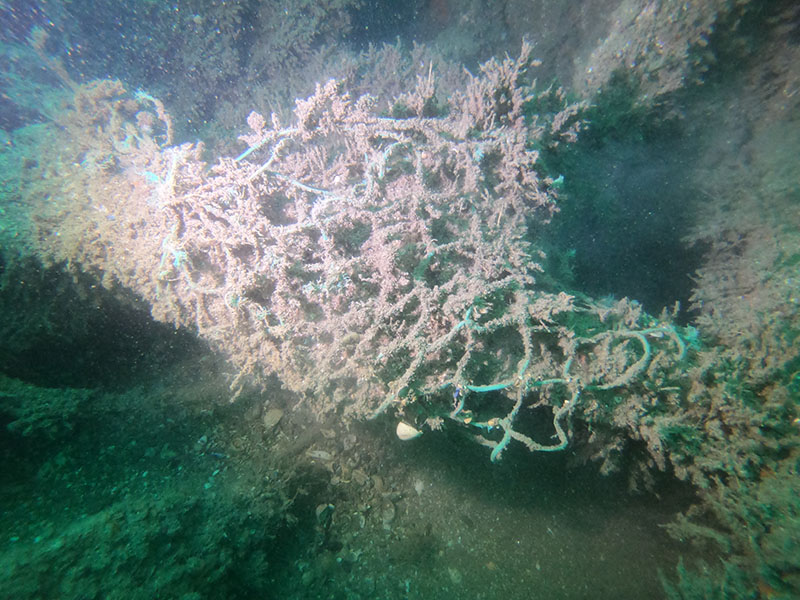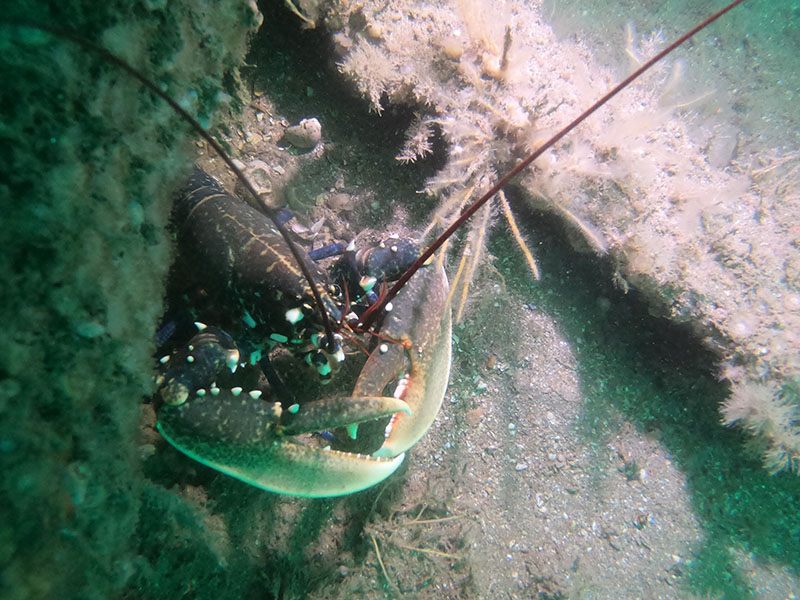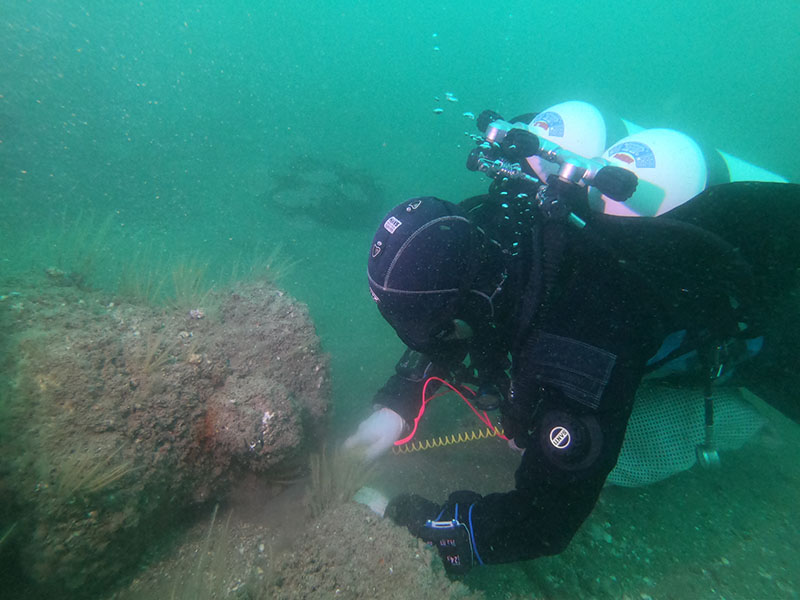By Sophie Atkinson
Wild Coast Sussex Project Officer
Last week’s episode of Planet Earth III shed light on one of the biggest threats to marine life globally – ghost gear. Ghost gear is the term used to describe abandoned, lost, or discarded fishing gear, and is so named as it continues to capture and trap marine animals even after it is no longer being used by humans.

Sir David Attenborough explained that one million tonnes of ghost fishing gear is left to drift in the ocean every year. Rafts of net silently travel through the open ocean and become entangled on reefs when they eventually sink. Animals that become trapped in ghost gear stand little chance of survival, as it hinders their ability to forage, evade predators, and breathe. For many unfortunate animals, becoming entangled in ghost gear ends in death.

So what can we do about it? Since the start of the Wild Coast Sussex project, the project team has been reporting ghost gear sightings to Ghost Fishing UK. Ghost Fishing UK is an organisation run entirely by volunteer divers, who travel the British Isles to retrieve ghost gear from the ocean. This is a challenging task, as the ghost gear is often heavily entangled on reefs and wrecks, and the divers have to be careful not to deplete too much of their air supply whilst cutting through tough nylon rope. In the past three years, Ghost Fishing UK have removed over 100 lobster pots and 400 kg of fishing net from the Sussex seabed, making it a safer environment for marine life.

The Wild Coast Sussex project has also been working with ports along the Sussex coast to ensure fishers have a suitable waste stream for their end-of-life fishing gear, to prevent it ending up discarded at sea. We are working towards a recycling scheme so that not only will end-of-life gear be saved from entering the ocean, it can be turned into new and useful products.
To see what Ghost Fishing UK get up to on one of their ghost gear retrieval trips, check out this video https://youtu.be/qPSEUvyiH_I
